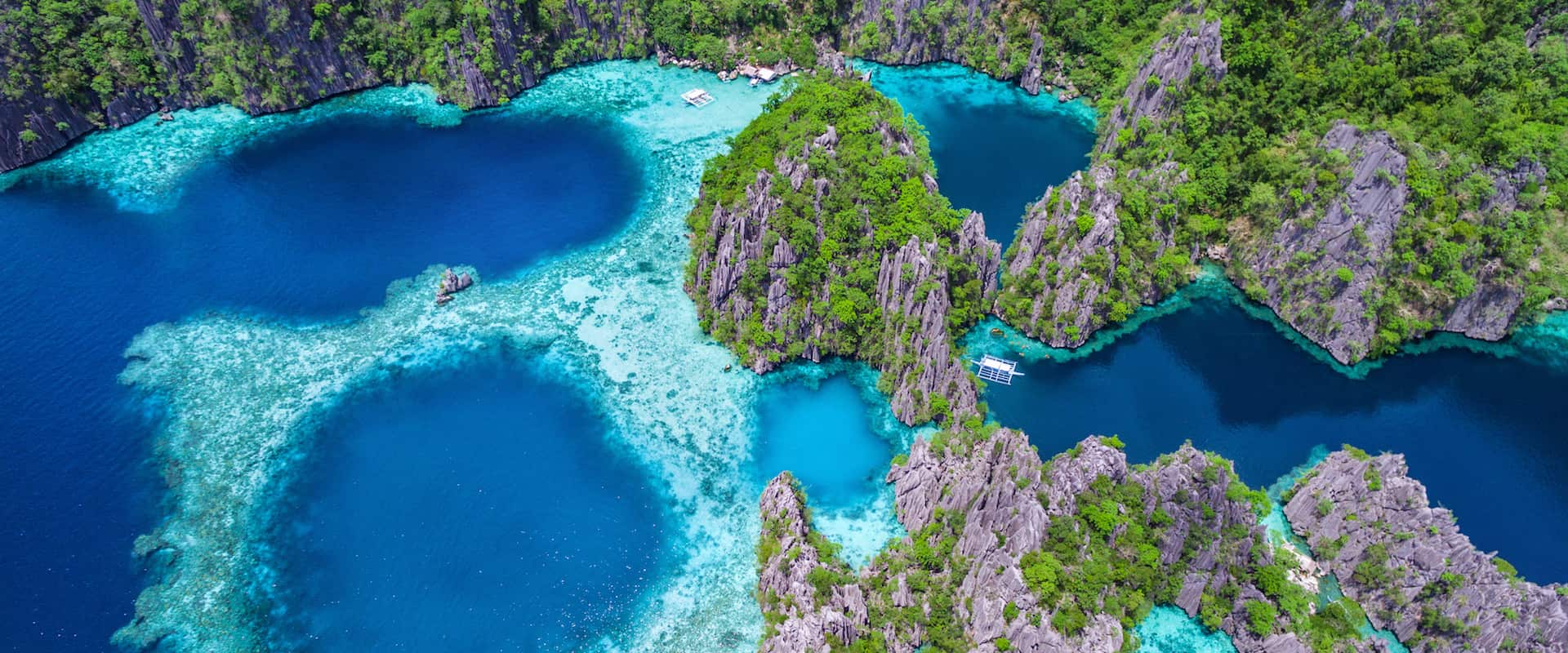Tubbataha Scuba Diving
Tubbataha Scuba Diving
97,000 hectares of marine preserved area in Tubbataha Reef National Park means scuba diving in a well-preserved marine life with thriving reefs and a high an abundance of marine life of all shapes and sizes. Scuba diving in Tubbataha Reef National Park is an opportunity for divers to see the results of an environment that represents the true beauty of what can be underwater.
14 Liveaboards in Tubbataha
Explore all liveaboards
Philippines Aggressor
Philippines-
- from $ 372 / day
- 8.7 Fabulous
- 46reviews

Seadoors
Philippines-
- from $ 321 / day
- 8.7 Fabulous
- 66reviews

Philippines Aggressor II
Philippines-
- from $ 372 / day
- 8.4 Very good
- 5reviews

Resolute
Philippines-
- from $ 237 / day
- 8.7 Fabulous
- 31reviews

Palau Sport
Philippines-
- from $ 281 / day
- 8.2 Very good
- 24reviews

Navis 1
Philippines-
- from $ 257 / day
- 9.0 Superb
- 59reviews
Tubbataha is made up three islands; Jessie Beazley Reef, North Atoll and South Atoll, all of which are uninhabited except the local rangers who patrol the area, and are considered some of te best dive sites in the world. The north and south Atolls are part of the marine and bird reserve which was named a UNESCO world heritage site in 1993. Scuba diving Tubbataha is only available via a dive trip on a liveaboard due to all the islands being uninhabited and you would always depart from Puerto Princesa which is around 150 km (93 mi) north of Tubbataha.
MARINE LIFE IN TUBBATAHA
This area is part of the coral triangle; the largest abundance of corals in the world. There have been estimated to be around 350 species of corals, over 500 species of fish, 13 species of whales and dolphins and 11 recorded shark species. If you are planning a dive trip to here then do not forget your camera as the turquoise waters, excellent visibility, vibrant colours and fantastic photo subjects. Some of the marine life here include small reef fish such as butterfly fish, angel fish and parrot fish whose schools brighten up the reefs even more, some more unique fish such as lionfish and scorpion fish and then schools of larger fish including trevally, grouper and tuna. The biggest spectacles include hawksbill and green turtles which gracefully float through the waters, manta and eagle rays who fly by you while you are scuba diving, blacktip and whitetip sharks lure in the deeper areas and the fabulous Hammerhead shark pops up now and then for some extra excitement.
BEST DIVE SITES IN TUBBATAHA
JESSIE BEAZLEY REEF: this is the smallest reef of the three; stretching only 1.5 km (9 mi) in width it can be covered in two dives, but they are no ordinary scuba dives! Even though it falls outside of the marine protected area, it is still flourishing with a coral covered reef floor sloping from a 7m depth down to 12m which leads to a wall which drops down 50m. Here you have a chance to see Black and White tips, Hammerheads and much more.
NORTH ATOLL: In this area is a breeding site for Green turtles and Hawksbill turtles which mean they are there in a high abundance which is always a beautiful thing to see. There are also a high abundance of colourful nudibranchs and sea cucumbers scattered over the sea bed along with endless corals.
SOUTH ATOLL: This dive site is around 24 metres deep (70 feet) with a sea wall stretching 12 kilometres (7.5 mi) and inhabits numerous schools of fish and interesting micro sea life. For wreck divers this is the place to go; here Deslan wreck is located for something a little different. There is a large variety seen during scuba diving trips here.
BEST TIME TO DIVE IN TUBBATAHA
SEASONS AND CONDITIONS: The absolute best time to go scuba diving in Tubbataha is during the dry season which stretches from March to June. It brings warm, dry and calm weather and fantastic visibility. From September to December it is typhoon season which can affect diving conditions. There is a large variation in visibility; it ranges from 5m - 45m (16ft- 148ft) completely depending on the time of the year.
WATER TEMPERATURE: The temperature of the water also varies, but is always at a pleasant temperature. The temperature at its lowest is 23°C (73°F) and heats up to 30°C (86°F), all for which you only need a wetsuit, and in the dry season with the warmest water temperatures a shorty wetsuit will suffice, or even no wetsuit!
EXPERIENCE LEVEL FOR DIVING TUBBATAHA
Diving in Tubbataha National Park means seeing some of the best dive spots in the world, and it is possible for everyone of any level of diving. There are numerous dive sites in each dive area, an each with their own level of difficulty. In general, it is very beneficial for you if you have your Open Water Certification and for some dives including wreck dives a further certification is needed.
HOW DO I GET TO TUBBATAHA?
The closest largest city to Tubbataha National Park is Puerto Princesa which is Palawan's capital. The airport is named Puerto Princesa International Airport, but for passenger flights they only fly to Cebu and Manila. If you are planning to take a Philippines liveaboard to the Tubbataha National Park then it will depart from the port of Puerto Princesa. There are multiple activities in and around Puerto Princesa for visitors to enjoy including exploring its flourishing jungles, visit the Puerto Princesa Underground River and even do some island hopping.
14 Liveaboards in Tubbataha
Explore all liveaboards
Philippines Aggressor
Philippines-
- from $ 372 / day
- 8.7 Fabulous
- 46reviews

Seadoors
Philippines-
- from $ 321 / day
- 8.7 Fabulous
- 66reviews

Philippines Aggressor II
Philippines-
- from $ 372 / day
- 8.4 Very good
- 5reviews

Resolute
Philippines-
- from $ 237 / day
- 8.7 Fabulous
- 31reviews

Palau Sport
Philippines-
- from $ 281 / day
- 8.2 Very good
- 24reviews

Navis 1
Philippines-
- from $ 257 / day
- 9.0 Superb
- 59reviews











